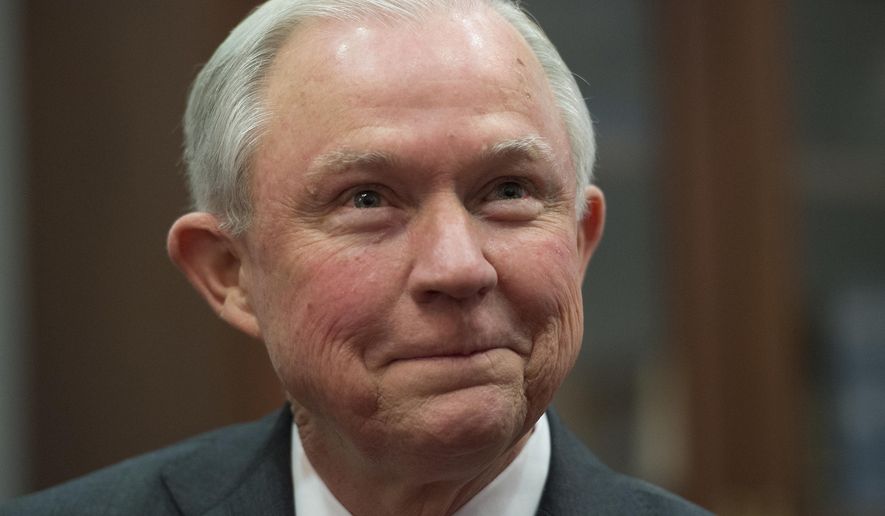A former Justice Department lawyer who prosecuted voter fraud cases rose to the defense of Sen. Jeff Sessions on Thursday in the face of increasingly bitter accusations that Mr. Sessions, while a federal prosecutor, misused voter protection laws.
“Mr. Sessions should be applauded for his efforts to combat voter fraud in Alabama,” said Christian Adams, the former Justice Department lawyer and now president of the Public Interest Legal Foundation.
Mr. Sessions’ actions in a case from three decades ago is looming large as he prepares to face a confirmation hearing next week. In that case the Justice Department brought charges against several people whom the government said engaged in absentee ballot fraud, harvesting ballots from absentee voters and then filling them in themselves. All of those involved — the voters and the accused — were black.
Former Massachusetts Gov. Deval Patrick, who was part of the defense team for the accused, said Mr. Sessions, who was then the U.S. attorney for southern Alabama, never should have pursued the case in the first place, saying it appeared to be an attempt to intimidate people who were trying to help others vote.
A jury acquitted the defendants.
“Pursuing that case was an act of extraordinary quasi-judicial activism,” Mr. Patrick said in a letter he filed with the Senate Judiciary Committee, which will hold a hearing on Mr. Sessions next week. Mr. Patrick suggested Mr. Sessions may have had racial motives for pursuing the case, saying it seemed striking that the prosecutor only went after black activists helping with absentee ballots, but didn’t target any white activists.
Mr. Adams, who served in the voting rights section of the Justice Department years after the Alabama case, sent his own letter to the Senate saying Mr. Patrick botched both the facts of the case and the legal situation with voter fraud and intimidation laws.
Mr. Adams said Mr. Patrick was portraying the activists who were harvesting absentee ballots as voting-rights heroes, but Mr. Adams said in fact they were poisoning the election process.
“Far from being some noble endeavor couched in civil rights, these absentee ballot activities steal votes,” he wrote.
He said Mr. Patrick may have thought that because both the victims and the defendants in the case were black, “no crime occurred because the harvesters knew who the voters should (or would) support.” Mr. Adams said it was a common excuse he heard in his own investigations into voter fraud — but it is not a legal defense.
Mr. Adams said the defendants in the Alabama case even offered to plead guilty to a misdemeanor election crime, suggesting that they acknowledged they’d done something wrong. Mr. Adams said as one of the lawyers for the defendants, Mr. Patrick would have been ethically remiss to have entertained a plea deal if his clients weren’t in fact guilty.
• Stephen Dinan can be reached at sdinan@washingtontimes.com.




Please read our comment policy before commenting.